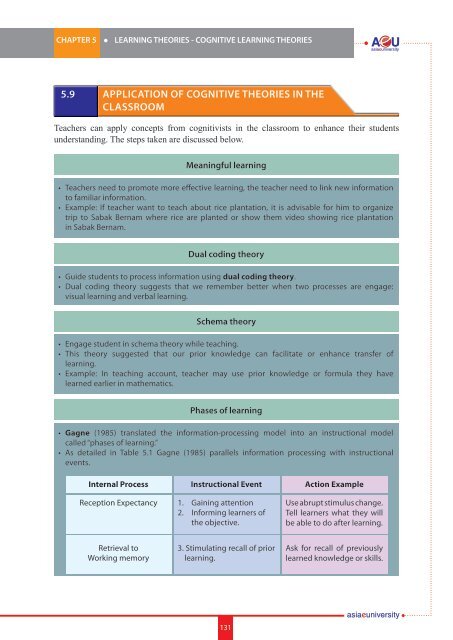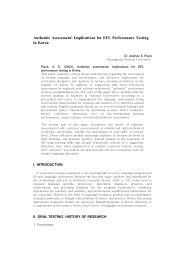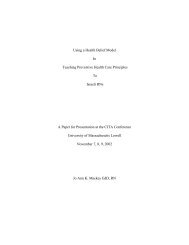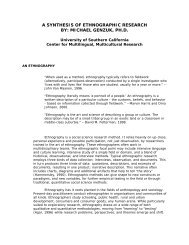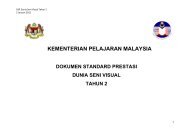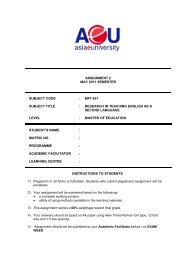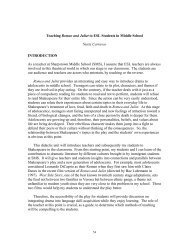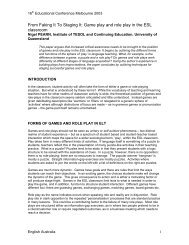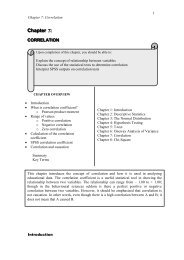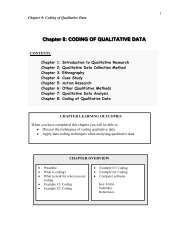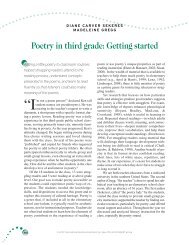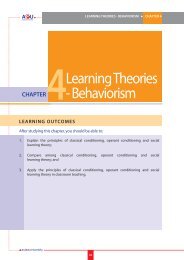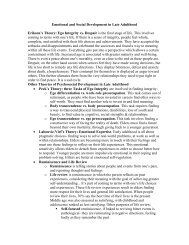Learning Theories - Cognitive Learning Theories CHAPTER
Learning Theories - Cognitive Learning Theories CHAPTER
Learning Theories - Cognitive Learning Theories CHAPTER
Create successful ePaper yourself
Turn your PDF publications into a flip-book with our unique Google optimized e-Paper software.
<strong>CHAPTER</strong> 5• LEARNING THEORIES - COGNITIVE LEARNING THEORIES5.9 Application Of <strong>Cognitive</strong> <strong>Theories</strong> In TheClassroomTeachers can apply concepts from cognitivists in the classroom to enhance their studentsunderstanding. The steps taken are discussed below.Meaningful learning• Teachers need to promote more effective learning, the teacher need to link new informationto familiar information.• Example: If teacher want to teach about rice plantation, it is advisable for him to organizetrip to Sabak Bernam where rice are planted or show them video showing rice plantationin Sabak Bernam.Dual coding theory• Guide students to process information using dual coding theory.• Dual coding theory suggests that we remember better when two processes are engage:visual learning and verbal learning.Schema theoryi.131• Engage student in schema theory while teaching.• This theory suggested that our prior knowledge can facilitate or enhance transfer oflearning.• Example: In teaching account, teacher may use prior knowledge or formula they havelearned earlier in mathematics.Phases of learning• Gagne (1985) translated the information-processing model into an instructional modelcalled “phases of learning.”• As detailed in Table 5.1 Gagne (1985) parallels information processing with instructionalevents.Internal Process Instructional Event Action ExampleReception Expectancy1. Gaining attention2. Informing learners ofthe objective.Use abrupt stimulus change.Tell learners what they willbe able to do after learning.Retrieval toWorking memory3. Stimulating recall of priorlearning.Ask for recall of previouslylearned knowledge or skills.131


